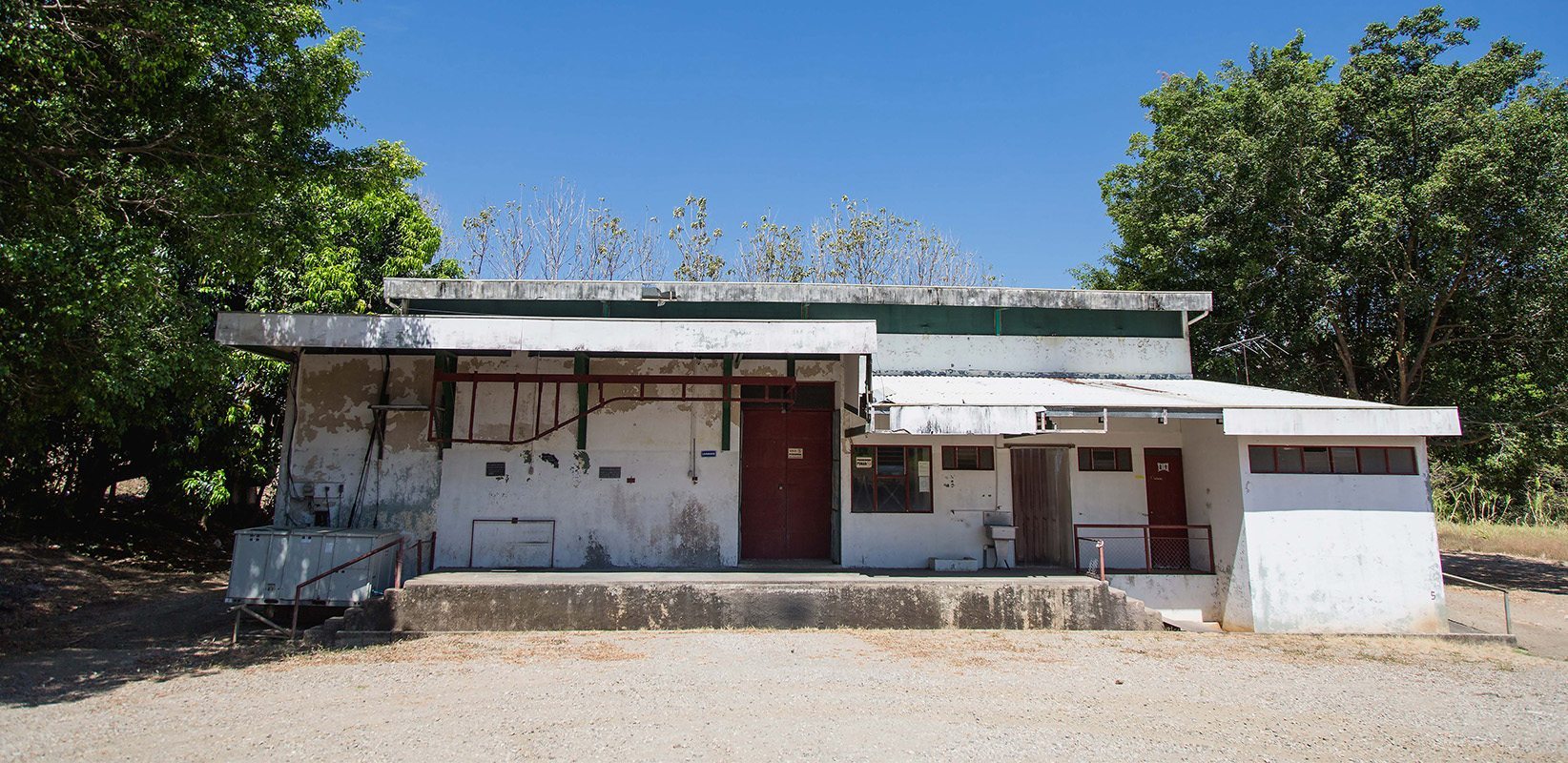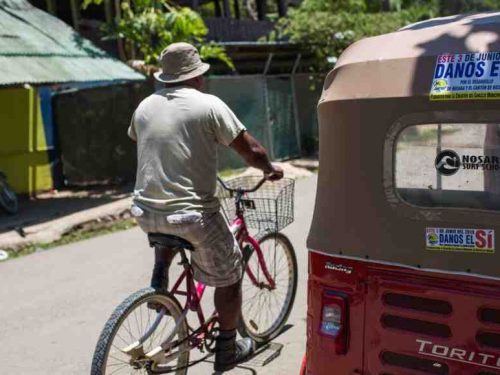
Nicoya’s local government closed the city slaughterhouse after four years of not receiving any rent money from the property and, during which time, they never signed a contract with the tenant.
According to a July 2017 report from the city’s legal department, the last time they received rent was in 2013.
The document, obtained by The Voice of Guanacaste, says that the government contracting office doesn’t have a record of the process through which they licensed the business to the current tenant, Walter Jiménez, who ran the business until February 2 when the city closed the locale.
The slaughterhouse also lacked the proper health conditions needed in order to operate, according to a separate report published by the National Animal Health Services (Senasa) in February this year.
Mayor Adriana Rodriguez explained during a city council session that she wasn’t aware of the problem at the slaughterhouse. As deputy mayor, she wasn’t assigned to any tasks related to the slaughterhouse.
She also said that she is facing a criminal suit for being related to Walter Jiménez. Her assistant, Vivian Leal, told this newspaper that the degree of family relation that Rodriguez has with Jiménez “isn’t covered by the administrative contracting law.”

City hall doesn’t have a record of how much they lost in rent from the city property.
City administrative director Franklin Sequeira said that Walter Jiménez took over the property during the first administration of Marco Jiménez, who is currently suspended from his post for various alleged crimes. However, Walter says he is not entirely sure of the date this deal was made.
After closing the slaughterhouse, the local government launched a process to rent it to someone else through a proper administrative process.
What Happened
Sequeira explained that the slaughterhouse was rented to Ulises Montiel, who quit operating once the business stopped being profitable about six years ago.
“Walter was the second on board, because he has worked his whole life as a butcher. He knew the process so he took over,” Sequeira said.
Instead of writing a formal contract, the city and Jiménez reached a verbal agreement about the administration of the property, Sequeira said.
Walter Jiménez’s daughter, Keiry Jiménez, gave this newspaper a phone interview, but wouldn’t give out her father’s phone number.
According to the daughter, in order to comply with Senasa’s conditions, her father invested ¢15 million ($26,500) in equipment, infrastructure and training, so he and the city agreed on suspending rent payments as a way to compensate for the investment. “What was invested is more than simple rent payments,” Keiry Jiménez said.
But the city’s administrative director said the agreement was to lower the rent, not stop paying altogether. He didn’t specify what the exact amount agreed upon was.
“There is no contract with Walter. If there were a contract it would have stipulated that the tenant agrees to pay this amount, but there is none,” he said.
Unsanitary Conditions
At the end of February, Senasa warned city hall about the “repeated” deficiencies at the slaughterhouse and ordered them to improve conditions.
According to the report, because of the lack of a contract with the tenant, correcting the situation became the responsibility of the mayor’s office. But city hall didn’t make the changes because it hasn’t included the slaughterhouse in its budget for the last four years.
“The slaughterhouse wasn’t functioning properly,” doctor Jorge Chavarría, public health coordinator for Senasa, told The Voice of Guanacaste. “Its cleanliness wasn’t adequate and it often didn’t have enough water.”
The Future of the Slaughterhouse
Ironing out the details on the property could take up to a year, according to the mayor.
Walter Jiménez requested permits from the city council to continue operating while they look for a new tenant. He wants to continue because of the investment he made and because he would buy leather and feed from ranchers, which he would sell in order to generate extra revenue, his daughter says.
Because of the closure, ranchers and butchers are working with the Cinco Estrellas slaughterhouse in Miramar, Puntarenas. The Cinco Estrellas slaughterhouse provides free transport, but only once per week and the demand is very high, they say.
“When the guy here was open I took my beef there for slaughtering, but now, if we don’t have enough money, we have to order from a meat vendor,” said butcher Alex Blancaneaux.
“In terms of slaughter quality, Cinco Estrellas is better. It’s more hygenic,” said Ronald Montero, another butcher. He added that if they reopen the one in Nicoya he will continue to use it “to support local business,”
Meanwhile, at the offices of Nicoya City Hall, there are no economic records on how much the city lost because of the administrative irregularities.
Franklin Sequeira says that, from his perspective, the best option would be to sell the property or change it completely to some other kind of business, because it’s not profitable for the city nor the tenant.






Comments